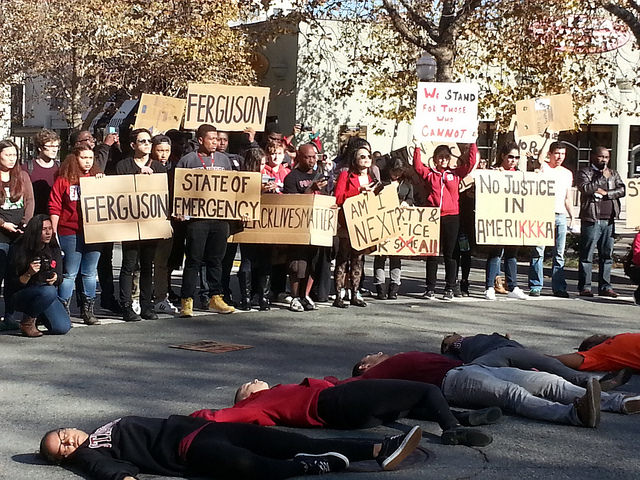
Following the volatile protests in Ferguson, MO in reaction to the murder of Michael Brown at the hands of police, politicians and pundits have begun referring to something called the “Ferguson effect.” This term is meant to describe a new reality for police officers wherein they face a public that fundamentally dislikes and distrusts them. Some argue that this has had made it harder for the police to do their jobs and that police are reacting by taking a step back; these same people argue that this is leading to a jump in crime and a decrease in law enforcement. But social scientists have found no evidence for this and new research by sociologists at the University of Colorado, Boulder points to a different kind of Ferguson effect — more informed police officers.
As described by an article in the New York Times, police pullback and increases (or decreases) in crime are difficult to link directly to the events in Ferguson. David C. Pyrooz finds that there was no overall increase in crime across 81 major American cities following Michael Brown’ death. In fact, though some cities saw a rise in homicides in recent eras, this trend quite likely began before the events in Ferguson.
Research by multiple social scientists shows that there are complicated reasons behind drops in policing or rises in crime, and tracking these relationships is challenging. Nevertheless, research indicates that declines in policing are not related to police apathy or community angst. Instead, protests may actually help cops become more familiar with community concerns. Soon-to-be-published research by Professor Pyrooz and colleagues shows that, in Missouri, the events of Ferguson were followed by an overall drop in traffic stops and car searches and the proportion of successful car searches rose, meaning that the police are exercising better judgment when choosing who they pull over. This may be a sign that police forces are becoming more sensitive to community concerns and trying to police in a more effective way.

Comments